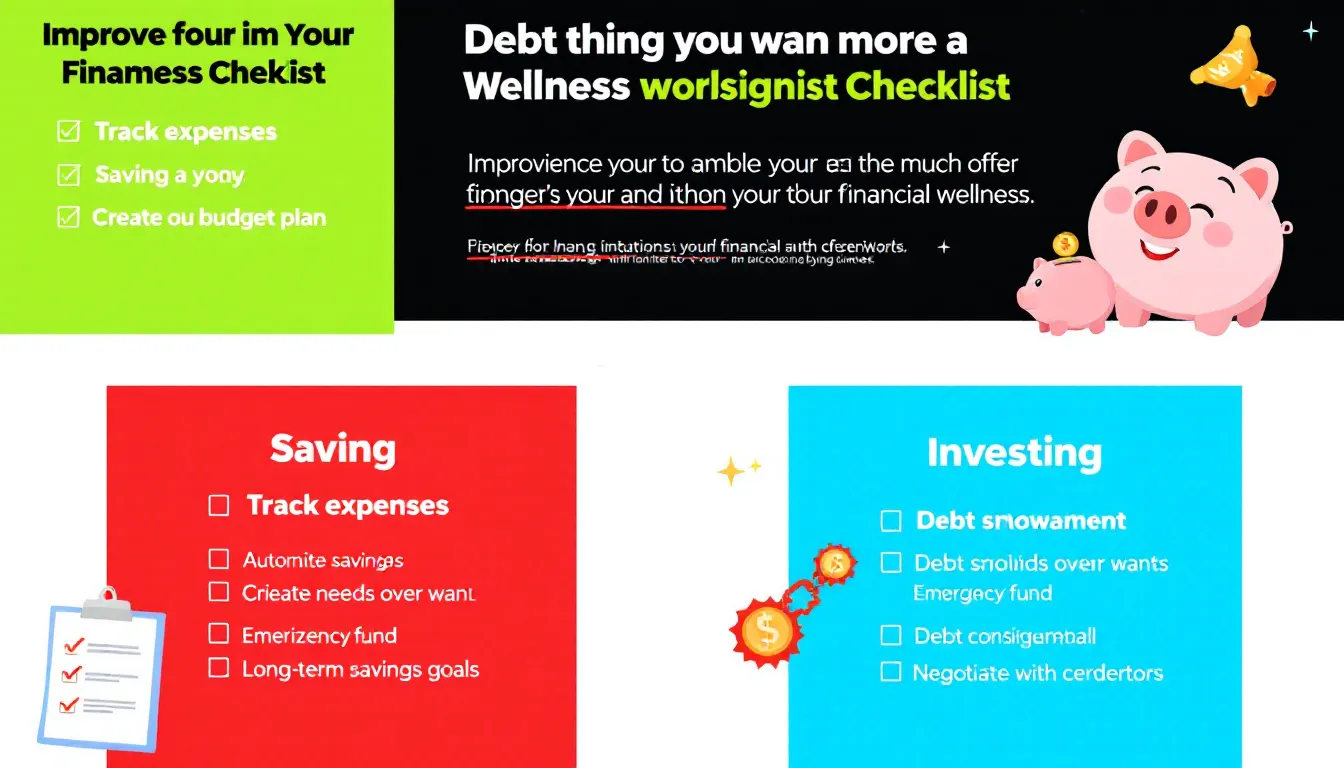Let's Get Serious About Your Financial Wellness
Our Financial Wellness Mindset step-by-step system will help you take control of your finances and create the security and freedom you’ve been dreaming for you and your family.
GET STARTEDFEATURED IN:

GET STARTED
Where Would You Like To Start?
Homebuyer University
Learn how the home buying process works and all of the steps that lead to homeownership.
Down Payment Assistance
Get access to down payment assistance programs and up to $35,000 Hometown Hero
List of Business Credit Cards
Learn how to get access to business credit cards that doesn't report on your consumer credit.
Fix & Flip
Learn how to Fix & Flip real estate for $50,000 pay checks and more. See real deals inside.

Business Loans
Get access to commercial business loans to finance your business. Start-up and existing.

Commercial Loan Officer
Learn how to become a commercial loan officer and make money lending.

Investing Money
Put your money to work for you with actionable and up-to-date investment advice.

FREE GIFT
Take The Financial Wellness Quiz To Financial Freedom Challenge
Kickstart your financial success with the financial wellness quiz to see where you are and how to navigate step-by-step guidance, hands-on resources, and daily group accountability check-ins to reach your financial goals.
YES, COUNT ME INLATEST FROM THE BLOG
Level Up Your Financial Skills
Our comprehensive blog has everything you need to better understand your current financial situation and plan for the future.
The Ultimate Guide to Financial Wellness: Tips and Strategies for a Secure Future
Financial wellness is about managing your money to reduce stress and live comfortably. It’s understanding your finances, setting goals, and planning for the future. In this article, we’ll cover budgeting, saving, and investing to help you achieve financial wellness.
Key Takeaways
-
Financial wellness involves effective management of day-to-day finances, long-term goal planning, and building financial flexibility to ensure both stability and quality of life.
-
Key strategies to enhance financial wellness include creating a budget, establishing an emergency fund, and reducing debt, all of which empower individuals to achieve financial freedom.
-
Continuous learning and regular assessment of financial strategies are essential for adapting to life changes and maintaining long-term financial security.
OUR FOUNDER
Andre Little
After graduating with a degree in Real Estate Finance from the American University in Washington DC, I was hit with large amounts of student loan debt. Not exactly the way I expected to start my new career! I was married one month out of college and a baby on the way within one year. I wish I could say I made smart financial decisions all the time, but I didn't and it's been a lifetime of experiences to this day that has help me to be in a position to help others.
In the last 30 plus years I have help tens of thousands become homeowners and I've reviewed more credit reports and analyze credit over three decades, even before there was such a thing as a credit score. Many of my clients who were turned down by other lenders got approved with my company and achieve the dream of homeownership.
I've owned up to 15 Million dollars in real estate assets and loss it all back in 2008 and had to file bankruptcy like so many others when the real estate market bubble burst. I use my own personal struggle and success to help people just like you find financial freedom. I’ll show you how to earn more, save more, and put your money to work for you with smart financial investments. But it all starts with having a Financial Wellness Mindset before it can manifest.
READ MY STORY"If you are looking to close on a loan fast, Andre is the man. He goes above and beyond to make sure your loan closes smoothly and on time. He is by far the best lender I worked with."
- Junior Michael
"If you’re serious about closing your loan fast, Andre Little is the man! Andre’s service at Loan Trust feels as smooth as a cash deal—he works around the clock to make it happen, any time of day. He’s got the experience and hustle to push things through with zero hassle. If you want your loan closed quickly and with confidence, Andre is the one to go to. Highly recommend!"
- Maricely's Fernandez
"Andre treated me as family. He kept me on a straight and narrow path to help me reach my goal! Whenever I felt discouraged, he reassured I was in the right hands and we would indeed cross that finish line. From start to finish, the process was only about 6 months long (with a few hiccups on my end). At the end when the process became intense, Andre worked tirelessly behind the scenes fighting battles I still know nothing about. This is my first home as a single mom, and my kids and I couldn’t be happier. We will forever be grateful for experience! Thank you again and again!"
- Jasmine H.
ONLINE COURSES
The Money School
Take control of your financial future with these comprehensive courses.

Financial Foundations
Learn the basics of sound financial management with this 6-week course.

Dominate Debt
Say goodbye to debt for good with this easy-to-follow 5-step system.

Mortgage Mastery
Learn how to back your investments with real estate and qualify for the best rates.

Credit Card Crash Course
Build and maintain a high credit score with this 5-week step-by-step course.
The Ultimate Guide to Financial Wellness: Tips and Strategies for a Secure Future
Financial wellness is about managing your money to reduce stress and live comfortably. It’s understanding your finances, setting goals, and planning for the future. In this article, we’ll cover budgeting, saving, and investing to help you achieve financial wellness.
Key Takeaways
-
Financial wellness involves effective management of day-to-day finances, long-term goal planning, and building financial flexibility to ensure both stability and quality of life.
-
Key strategies to enhance financial wellness include creating a budget, establishing an emergency fund, and reducing debt, all of which empower individuals to achieve financial freedom.
-
Continuous learning and regular assessment of financial strategies are essential for adapting to life changes and maintaining long-term financial security.
Understanding Financial Wellness

Financial wellness is a measure of how well you manage your financial life. It involves having a clear understanding and a sound plan for managing your finances, which in turn contributes to your overall life satisfaction and security. Financial wellness is about having sufficient resources to sustain your current lifestyle. It also ensures that you can maintain that lifestyle in the future, particularly during retirement. It impacts both your day-to-day activities and long-term financial goals, such as retirement planning.
The journey to financial wellness is unique for everyone and can vary based on your life stage and personal goals. Whether you’re just starting your career, planning for a family, or preparing for retirement, financial wellness involves a proactive approach to managing your personal finances to reduce stress and improve your quality of life.
Knowing that you won’t be financially dependent on others provides peace of mind and brings a more balanced and fulfilling life.
Key Elements of Financial Wellness
Financial wellness encompasses several key elements that are critical to managing money effectively and ensuring financial stability. These elements include managing day-to-day finances, planning for long-term financial goals, and building financial flexibility.
Focusing on these areas helps develop a healthy relationship with money and create a comprehensive financial plan that covers both immediate needs and future aspirations.
Managing Day-to-Day Finances
Managing day-to-day finances is crucial for financial well-being. Effective management of daily expenses, such as groceries, utilities, and rent or mortgage monthly payments, can significantly reduce stress and anxiety related to finances. Creating a realistic budget by tracking your spending and understanding your income is a vital first step towards achieving financial stability. Adhering to a budget and gradually increasing income allows for more efficient management of regular expenses and improves overall financial health.
A well-managed budget not only helps you meet your basic needs but also prepares you for emergencies and significant expenses. This proactive approach to managing your finances can enhance your quality of life and contribute to better mental health. Reducing daily financial stress allows you to focus on other important aspects of life, knowing that your financial situation is under control.
Planning for Long-Term Financial Goals
Planning for long-term financial goals is essential for ensuring financial stability and security in the future. Establishing both short-term and long-term financial goals helps create a roadmap for your financial journey. Consistently saving and making smart investments can significantly enhance your financial stability and prepare you for life’s unexpected financial challenges. Contributing to tax-deferred accounts, such as retirement plans, can also prevent impulsive spending and provide tax benefits.
Regular financial reviews are crucial for staying on track with your long-term goals. Conducting yearly financial reviews, especially after significant life changes, ensures that your financial strategies remain aligned with your current situation and future aspirations. This continuous evaluation helps you adapt to changes in your financial life and make informed decisions that support your long-term financial well-being.
Building Financial Flexibility
Building financial flexibility is vital for adapting to unexpected financial situations and opportunities. Financial flexibility allows you to respond to life’s changes, whether it’s a career shift, personal growth opportunity, or unforeseen expense.
Here are some strategies to build financial flexibility:
-
Save a portion of your income regularly.
-
Monitor your expenditures to identify areas for savings.
-
Create a financial buffer that protects against unforeseen expenses.
-
Provide the freedom to take calculated risks in investments or career advancements.
By implementing these strategies, you can enhance your financial resilience and adaptability.
Having financial flexibility not only helps in managing emergencies but also enhances your overall financial well-being. It provides the security to pursue new opportunities and navigate life’s challenges with confidence.
Prioritizing savings and maintaining disciplined spending helps to build savings and maintain a robust financial foundation that supports both short-term needs and long-term goals. By learning how to spend wisely and improving their spending habits, individuals can achieve their financial objectives more effectively.
Strategies to Improve Financial Wellness

Improving financial wellness involves adopting strategies that enhance your financial literacy and empower you to make informed financial decisions. Key strategies include creating a budget, establishing an emergency fund, and reducing and managing debt.
Implementing these strategies allows you to take control of your financial situation and work towards achieving financial freedom and stability.
Creating a Budget
Creating a budget is a fundamental step towards achieving financial health and securing your financial future. A well-structured budget helps clarify your financial priorities and ensures that your spending aligns with your savings goals. Budgeting apps and tools can simplify the process of tracking your income and expenses, making it easier to manage your finances effectively. Setting aside a small percentage of income into a savings account and gradually increasing it helps build a solid financial foundation and work towards long-term financial goals.
Individuals with strong financial wellness feel in control of their finances, manage their expenses, and pay their bills on time. Establishing a budget empowers you to make informed financial decisions and develop better money habits that support your financial future.
Budgeting not only helps you manage your current financial situation but also prepares you for future financial challenges and opportunities.
Establishing an Emergency Fund
An emergency fund acts as a financial safety net for unexpected expenses and is crucial for financial well-being. You should aim to save three to six months of living expenses in your emergency fund to cover unforeseen circumstances, such as medical emergencies, job loss, or major repairs. Starting with at least $1,000 in your emergency fund and gradually increasing your savings can provide the financial security needed to handle unexpected financial challenges.
Having an emergency fund alleviates financial stress and provides peace of mind, knowing that you are prepared for unexpected events. It allows you to focus on your long-term financial goals without worrying about immediate financial crises.
Prioritizing the establishment of an emergency fund enhances financial stability and aids in achieving financial security.
Reducing and Managing Debt
Reducing and managing debt is essential for financial well-being and long-term financial stability. Prioritizing debt repayment, especially targeting high-interest debts, can accelerate debt reduction and minimize overall interest paid. Creating a payment plan and sticking to it helps prevent accumulating new debts and ensures that you manage debt while staying on track with your financial goals.
Debt consolidation can simplify payments and potentially lower interest rates if managed wisely. Effective debt management involves making informed financial decisions and developing better money habits that support your financial future.
Reducing and managing debt improves your financial situation, helps achieve financial freedom, and supports long-term financial goals.
Enhancing Financial Literacy

Enhancing financial literacy is crucial for making informed financial decisions and achieving long-term financial stability. Financial literacy helps individuals understand essential financial topics, such as budgeting, saving, investing, and credit management.
Engaging in ongoing financial education improves decision-making capabilities and helps navigate changing economic conditions with confidence.
Utilizing Financial Education Programs
Financial education programs provide valuable resources for enhancing financial literacy programs. Many programs offer both online and in-person workshops tailored to various financial topics, such as budgeting, investing, and retirement planning education. Participating in these programs can lead to improved financial decision-making and increased confidence in managing your finances through educational content.
While the Financial Literacy Resource Directory offers valuable information, it is not a comprehensive information list of all available other resources. Exploring different financial education programs can help you find the ones that best suit your needs and goals.
Utilizing these programs enhances financial understanding and helps achieve financial stability and security.
Seeking Professional Financial Counseling
Consulting a financial professional can provide tailored advice to navigate complex money matters and get your finances on the right track. Financial coaches help with budgeting, creating an emergency fund, and paying down debt, while financial advisors typically provide investment advice and have a fiduciary duty. Identifying the specific area of your financial life that needs help before working with a financial coach can ensure that you receive the most relevant guidance.
Clients typically work with financial coaches to outline financial goals and track expenses to identify patterns related to taxes. Coaches usually charge on a fee-only basis, set fees, or a percentage of income.
For investment recommendations or management, seeking advice from a robo-advisor or financial advisor is advisable. Seeking professional financial counseling provides valuable insights and support to achieve your financial goals.
Staying Informed About Financial Trends
Staying informed about financial trends is essential for making better financial decisions and adapting strategies to changing economic conditions, as highlighted in the latest world report. Keeping up with financial news helps you stay updated on interest rates and other economic factors that can impact your financial situation. There are free or affordable financial advice resources available for those who prefer a DIY approach.
Staying informed about financial trends allows for informed adjustments to your financial plan, ensuring alignment with your financial goals. This proactive approach to financial literacy helps you navigate the complexities of the financial world and achieve long-term financial stability.
Achieving Financial Security

Achieving financial security is crucial for peace of mind and stability in personal and family life. Saving and investing are fundamental actions towards financial security, providing a sense of financial well-being and freedom.
By focusing on building savings and investment accounts and protecting assets with insurance policies, you can invest to create a secure financial foundation for the future.
Building Savings and Investment Accounts
Building savings and investment accounts is key to long-term financial success. Regularly saving a portion of your income can be approached as a mandatory expense, similar to monthly rent or mortgage payments. A diversified investment portfolio helps mitigate risks and can enhance returns over time. Consistently contributing to savings and investment accounts and maintaining a bank account helps create a robust financial foundation that supports future financial goals.
Saving and investing contribute to emotional well-being by providing a sense of financial security. This financial stability allows you to pursue personal interests and experiences with confidence. By prioritizing savings and investments, you can build long-term wealth and achieve financial freedom.
Protecting Assets with Insurance Policies
Insurance policies are vital for protecting your financial assets from substantial losses due to unexpected circumstances. Insurance provides a financial safety net, minimizing the impact of unexpected expenses or losses.
Ensuring appropriate insurance policies are in place safeguards your finances and maintains financial security.
Maintaining Financial Wellbeing

Maintaining financial wellbeing involves adopting consistent financial behaviors that adjust to evolving financial situations. Regular evaluations of your past performance and financial status can help identify weaknesses and opportunities for improvement.
By continuously adapting your financial strategies and engaging in ongoing learning, you can ensure long-term financial stability and security.
Regular Financial Checkups
Periodic assessments of your financial plans are essential for ensuring that you remain aligned with your financial goals and can manage your finances effectively over time. Regular financial checkups involve reviewing your budget, tracking your expenses, and evaluating your savings and investment accounts to identify areas for improvement. Conducting these evaluations allows for informed adjustments to your financial strategies, keeping you on track with your financial objectives.
Sustaining financial wellbeing requires adopting consistent practices that adapt to your evolving financial situation. These practices include regularly reviewing your financial plans and making necessary adjustments to ensure that you are effectively managing your money. By staying proactive and engaged with your financial health, you can maintain financial stability and achieve long-term financial security.
Adapting to Life Changes
Life is full of significant events that can impact your financial situation, such as marriage, the birth of a child, or job loss. Adjusting your financial strategies in response to these major life events is crucial for maintaining financial stability. For example, getting married may require merging finances and adjusting your budget, while a job loss might necessitate dipping into your emergency fund and reassessing your financial goals.
Being prepared to adapt your financial strategies to life’s changes ensures financial stability and security. This flexibility allows you to navigate unexpected financial challenges and continue working towards your long-term financial goals.
Proactively updating your financial plan to reflect significant life events helps maintain your financial wellbeing and supports your overall quality of life through advance planning.
Continuous Learning and Personal Development
Continuous learning is vital for making informed financial decisions and enhancing your financial flexibility. Engaging in ongoing financial education and personal development helps you stay updated on financial trends, understand new financial products, and develop better money habits. Prioritizing continuous learning improves financial knowledge and helps make decisions that support long-term financial goals.
Personal development also plays a significant role in financial wellbeing. Pursuing higher education, setting personal goals, and engaging in activities that promote personal growth can enhance your overall quality of life and financial stability. By investing in yourself and your financial education, you can achieve financial freedom and create a secure financial future.
Summary
Financial wellness is a comprehensive approach to managing your personal finances that includes understanding your financial life, developing better money habits, and planning for a secure financial future. By focusing on the key elements of financial wellness, implementing strategies to improve financial health, enhancing financial literacy, and maintaining financial wellbeing, you can achieve financial stability and security. Remember, the journey to financial wellness is ongoing, and by staying proactive and engaged with your finances, you can create a future filled with financial freedom and peace of mind.
Frequently Asked Questions
What is financial wellness?
Financial wellness is the effective management of your financial life, characterized by a sound understanding and strategy for finances that reduces stress and enhances quality of life. Achieving financial wellness involves being proactive in planning and managing your financial resources.
Why is creating a budget important?
Creating a budget is essential as it clarifies financial priorities and ensures that spending aligns with savings goals, enabling informed financial decisions.
How much should I save in an emergency fund?
It is advisable to save three to six months' worth of living expenses in your emergency fund to adequately prepare for unexpected situations. This financial cushion will provide you with essential security during challenging times.
What are the benefits of financial education programs?
Financial education programs enhance financial literacy, improve decision-making, and increase confidence in managing finances. These benefits empower individuals to make informed financial choices that positively impact their lives.
How can I stay updated on financial trends?
To stay updated on financial trends, consistently follow reputable financial news outlets and monitor economic indicators such as interest rates. Utilizing accessible financial resources can also enhance your understanding of market changes.
SERIOUS MONEY NEWSLETTER
Get actionable financial advice delivered to your inbox.
Financial freedom is a marathon, not a sprint. We’ll guide you to the finish line with weekly bite-sized advice.
